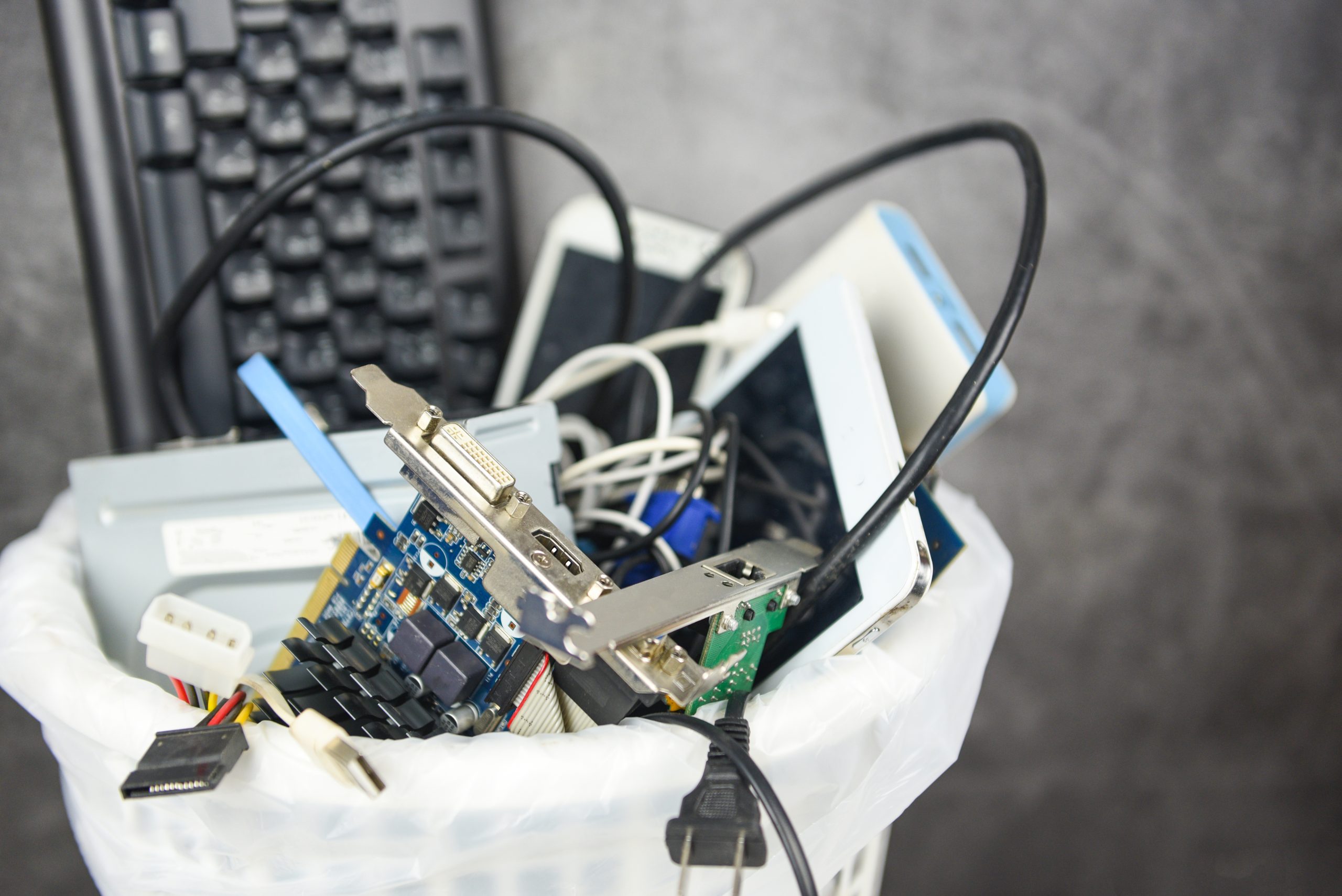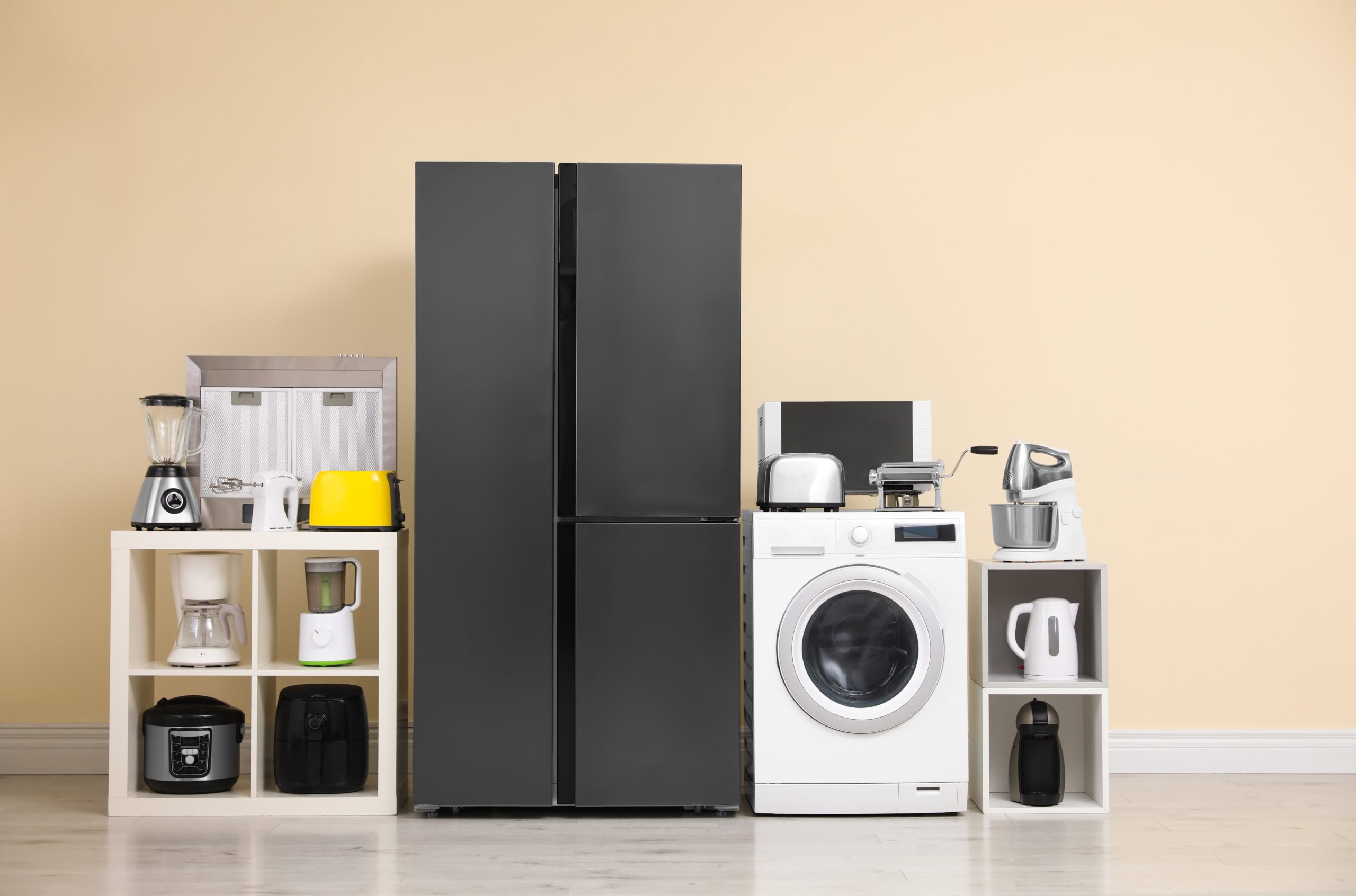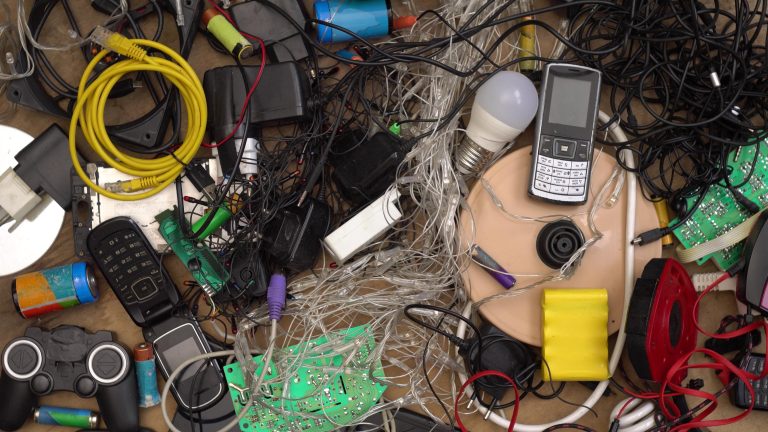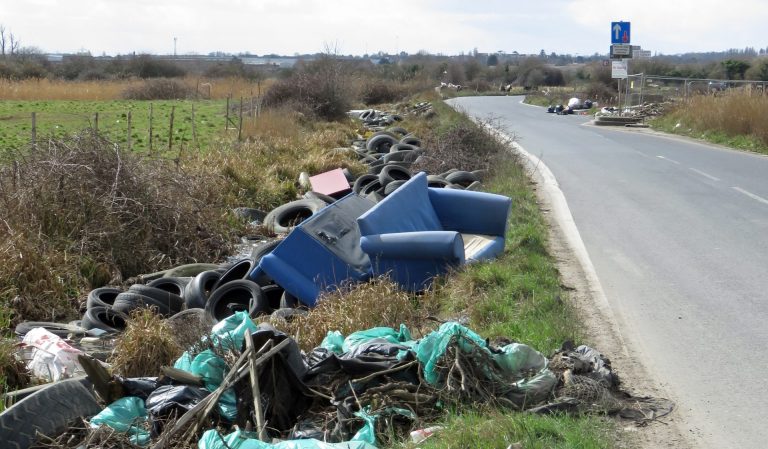As technology advances, old gadgets and electronics, known as e-waste, are accumulating rapidly in homes and workplaces. E-waste, including smartphones, laptops, televisions and fridges, is one of the fastest-growing waste streams globally. Recycling e-waste helps reduce landfill waste and conserve valuable resources, such as metals and rare earth elements. In the UK, recycling electronics is vital for minimising environmental harm, conserving resources and promoting a circular economy.
Why Recycle Electronics?
Recycling electronics offers several key benefits:
- Environmental Protection: Electronics contain hazardous substances like mercury, lead and cadmium that can leak into the environment if disposed of improperly. Recycling ensures these materials are handled safely, preventing contamination of soil and water.
- Resource Conservation: Electronics are made of valuable materials such as gold, silver, copper and rare earth elements. Recycling helps recover these resources, reducing the need for environmentally harmful mining and extraction.
- Reducing Landfill Waste: A large portion of e-waste in the UK ends up in landfills, contributing to waste and missing the opportunity to reuse valuable materials. Recycling electronics reduces landfill strain and promotes a circular economy, where materials are reused and remanufactured.
How to Recycle Electronics in the UK
Recycling electronics in the UK is easy, with numerous options available. Here’s a guide to help you dispose of your old gadgets responsibly:
1.Manufacturer Takeback Schemes
Many electronics brands offer takeback schemes, allowing you to return old devices for recycling or reuse when purchasing new ones. Some examples include:
- Apple: Offers trade-ins for credit or free recycling of old devices, including iPhones, iPads and MacBooks.
- Currys PC World: Provides free recycling of electronics, with in-store drop-offs or collection services for new purchases.
- Samsung: Allows you to return Samsung devices for recycling or trade-in and accepts non-Samsung products.
- Other Brands: Many manufacturers like Dell, HP and Panasonic also offer recycling programs.

2. Local Authority E-Waste Recycling Schemes
Most UK councils offer e-waste collection and disposal services. Many councils provide free collection for large electronic items or have designated recycling points for smaller gadgets.
- Household Waste Recycling Centres (HWRCs): Many councils operate centres where you can drop off unwanted electronics, including televisions, computers, fridges and small appliances.
- Collection Services: Some councils offer collection services for large items like washing machines or fridges, which may require contacting the local council for details.
Make sure to follow local guidelines, as some items like batteries and light bulbs require special handling.
3. Dedicated E-Waste Recycling Centres
If your council doesn’t offer e-waste services or you have a large number of electronics to recycle, consider visiting dedicated e-waste recycling centres. These facilities specialise in handling electronics, ensuring proper dismantling and recycling of components.
Accredited Centres: Look for centres certified under the Environment Agency and Waste Electrical and Electronic Equipment (WEEE) regulations to ensure responsible recycling practices.
4. Donate or Reuse Old Electronics
If your devices are still functional, donating them is a great option. Many charities and non-profits accept working electronics to refurbish and resell.
- Charities and Non-Profits: Organisations like Oxfam, British Heart Foundation and Cancer Research UK accept used electronics to raise funds for their causes.
- Refurbishers and Resellers: Some businesses specialise in refurbishing electronics for resale. Donating or selling your gadgets extends their lifespan and prevents them from ending up in landfills.
- Peer-to-Peer Exchange: Platforms like Freecycle, Gumtree or Facebook Marketplace allow you to give away gadgets to others who may need them.
5. Retailer Drop-Off Points
Many retailers, including Tesco, Asda and Sainsbury’s, have in-store recycling bins for small electronics like mobile phones, chargers and small appliances. These drop-off points make it convenient to recycle without visiting a dedicated recycling centre.
6. WEEE Regulations and E-Waste in the UK
The UK follows the Waste Electrical and Electronic Equipment (WEEE) regulations, which require the collection, recycling and disposal of electrical goods. Under these regulations:
- Producers must register and finance the recycling of their products.
- Consumers can dispose of old electronics at designated collection points free of charge.
WEEE regulations help reduce the environmental impact of e-waste by ensuring proper recycling.
Tips for Preparing Electronics for Recycling
Before sending your electronics for recycling, take a few simple steps to prepare your devices:
- Wipe Your Data: Always erase personal data from electronics like phones, laptops and computers. Use factory reset or data-wiping software to ensure your information is fully removed.
- Remove Batteries: If possible, remove batteries from devices. Some recycling centres require separate disposal of batteries due to their hazardous nature.
- Check for Packaging and Accessories: Remove any non-recyclable items, like cables or packaging, before recycling. Some accessories may need to be recycled separately.
Recycling electronics in the UK is straightforward, with many options available for responsible disposal. Whether you use manufacturer takeback schemes, drop off items at your local centre or donate working devices, every effort helps reduce e-waste’s environmental impact. By following these simple steps, you can conserve valuable resources, prevent hazardous pollution and contribute to the UK’s circular economy.
Responsible e-waste recycling plays a vital role in moving towards a sustainable future, and we all have a part to play.















